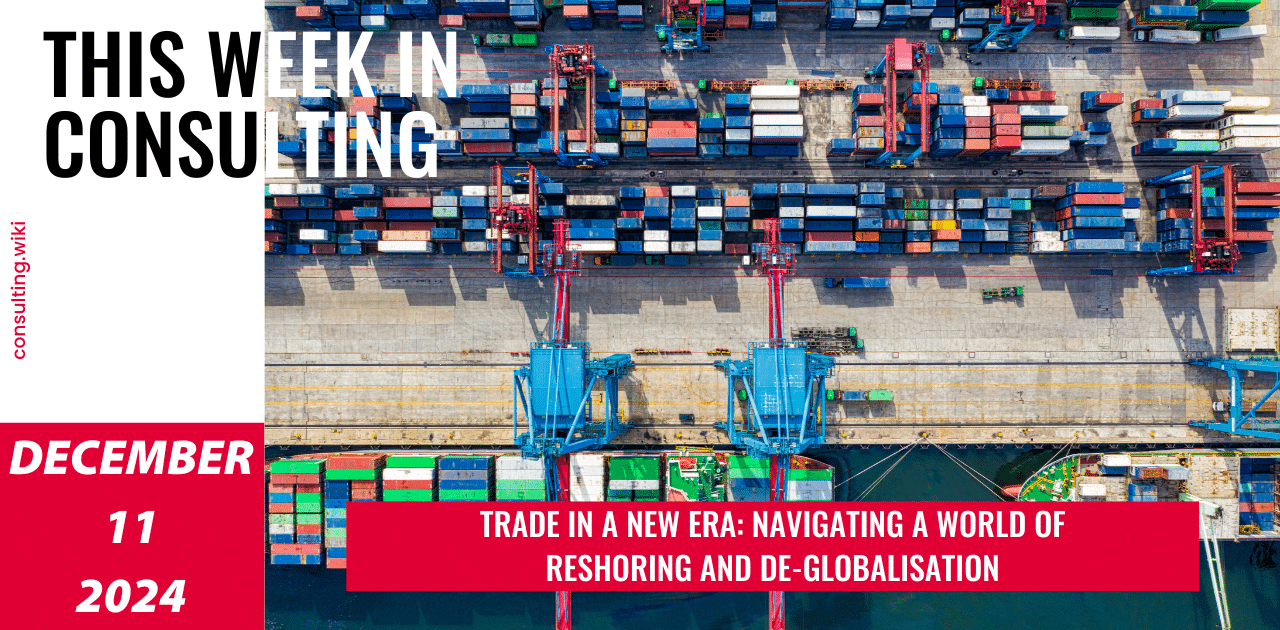
Global Economic Trends, Top Industries Driving the US Economy, the Effect on the Consulting Market
“Ask five economists, and you will get five different answers – six if one went to Harvard. ” – Edgar Fiedler
If we merely follow the projections provided by economists, we should see a significant shift in the balance of power by 2025 in the global market.
Here are a few interesting facts:
- Emerging Markets and Developing economies are growing at 2.5X faster rate than Advanced Economies (USA, Euro Area, Japan).
- If we take a look back, in 1995 the E7 (China, India, Indonesia, Brazil, Russia, Mexico, Turkey) was half the size of G7 (US, UK, France, Germany, Japan, Canada, Italy) at GDP level.
- By 2040, it could be double. Today the two groups are around the same size. Yet consulting in E7 is growing fast but nowhere near the extent it has achieved in the G7 countries.
Know the Consulting Category

If you are trying to get the best and most accurate snapshot of the various degrees of specialization in Consulting today, they are three main types: Generalists, Specialists, and Niche Players.
And a few interesting questions:
- Is there a cultural tendency to rely more on Consultants in the Advanced Economies?
- As most decisions are made in central offices located often in Advanced Economies, is it safe to say more money is being spent on Consultants there?
- Are organizations in Advanced Economies spending more on Consulting to keep an edge over competition?
Let us take you on a global tour and explore some regional market specificities along the way
We are heading towards a shift in the balance of powers. The global economic growth is expected to dip closer to 3% in the coming years.
After overtaking UK and France, India will be passing Germany and Japan successively. It seems to be only a matter of time for India and China take the top spots. Investors will soon see Emerging markets presenting the highest GDP growth, as attractive opportunities for international businesses.
As they mature, they will become less attractive for offshore manufacturing but will present B2B opportunities. Next, walking in the steps of China, they will become investors themselves.
Meanwhile, mature economies will continue to experience lower growth as they are forced to deal with this new paradigm.
How does that affect the Consulting market?
- When mapping GDP vs. Consulting Growth we can observe a moderate correlation (r= XX). According to Marc Baaji, three factors can help explain the differences across geographies.
- The economic development of the region will drive the ability to invest.
- The structure of the economy will show what sectors are the most likely to spend in consulting.
- The local culture will influence the willingness to work with outsiders.
- How major Consultancies define their set of megatrends shaping the future of society and the economy – PWC for example, predicts that despite the volatility of the economy, most of the additional growth will take place in medium-sized cities of developing countries.
- Digital revolution is impacting almost every industry and geography. As a result, regional regulators are now trying to place some limits to regain some form of control (think GDPR or internet access in China).
- Global Consulting market today – North America and Europe combined represent close to 80% of the consulting market, followed by Asia Pacific, Middle East, Latam, and Africa.
- Even though growth is twice as fast in Asia as in North America, the North American Market is roughly three times the size of the Asian one. At the current pace, it will probably take another 30 years for the Asian market to catch-up.
- Global market with local players – While most of the clients are, or becoming a part of global corporations, the consulting sector remains scattered.
Preference to work with Local Consultants – Clients tend to appreciate projects delivered by local consultants as they understand local culture easier. In fact, a significant share of consulting projects are performed by teams of 2 to 5 consultants and do not require a global presence or even a global footprint.
North America remains strong and resilient economically
Even though Emerging Economies are catching up, North America remains the largest economy in the world. Spearheaded by the U.S., the region represents close to 25% of the global economy. States in the US such as California, Texas or New York having an equivalent output to the UK, France, Italy or Brazil.
The Economy is at the same time enjoying a robust services sector and an abundant supply of natural resources. We can expect a slight slowdown in the years to come.
Two major trends are impacting the economy durably for the years to come. Unconventional Oil has opened access to low-cost energy. Subsequently, consumers are experiencing cheaper products and lower transportation costs. Digital is transforming almost all industries. New technologies such as Artificial Intelligence and automation are opening endless possibilities.
Top Economic Sectors driving the growth –
- Financial Services, far ahead with close to 20% of GDP output.
- Government related activities. Including military as well as federal and local expenses.
- Health Care, impacted by an aging population and regulatory evolution. There has been a 20% growth in health care sector jobs since 2008, while the average rate for the economy was only 3%. Health care jobs are expected to grow at a rate of 18% from 2016 to 2026.
- Technology, reaping the benefits of the Digital wave to go forth. Employment among computer and IT is projected to grow 13% from 2016 to 2026, faster than the average for all occupations. Demand for additional workers is stemming from cloud computing, the collection, and storage of big data and information security.
- Construction, unexpected fifth, benefiting from a growing population and an increased need for infrastructures. Construction occupations are projected to grow by 11% from 2016 to 2026. The growth is stemming from overall economic and population growth, which is increasing demand for new buildings, roads, and other structures.
- Retail, remaining the largest employer of the U.S since it includes both online and brick and mortar stores.
The largest and most mature consulting market –
Given the strength of its economy, it is no surprise to find North America as the largest market for management consulting. According to most market research firms, the market is estimated at around $100 billion with a CAGR at 4%, slightly higher than GDP.
The US market is by far the largest and represents close to 90% of the North American Market. Canada is about 6%, and Mexico completes the picture. The main activity is concentrated on both coasts with sizeable pockets in the Mid-West and Texas.
From an industry perspective, we can find the sectors leading the GDP as major spenders in Consulting:
- Financial Services, facing the same new regulations and Fintech disruption
- Healthcare with an energetic Pharma sector and the aftermaths of the healthcare reform
- Energy with the consolidation of Energy providers and the Shale Gas opportunities
- Media & Technology facing consolidation and high-speed innovation and,
- Government
Integration of digital in most services –
IBM, Accenture, Huron and the Big 4 but also McKinsey, BCG and AT Kearney have started supporting their clients in Digital transformation, and more specifically:
- Integrating digital into the strategy exercise to elaborate and implement new channels strategies,
- Building new business models,
- Covering cybersecurity risks
- Leveraging digital to increase operations’ efficiency
As you can see, the North American Consulting market is mature and dynamic. It is also the birthplace of many management trends such as Lean and innovation. Being a few years ahead of other markets, North America has also embraced very early the specialization of consulting services. The region shows the largest population of independent consultants in the world and at the same time the consolidation of all services into mammoth global one-stop shops. Without much risk, we can affirm that you can find in North America a company specialized in almost any management issue.
Planning to start a new Consulting project soon? We will be happy to offer you an outside perspective and guide you in the right direction. Please feel free to get in touch and tells us more about your organization and project needs.
Hélène Laffitte is the CEO of Consulting Quest, a Global Performance-Driven Consulting Platform and author of “Smart Consulting Sourcing”, a step by step guide to getting the best ROI from your consulting. With a blend of experience in Procurement and Consulting, Hélène is passionate about helping Companies create more value through Consulting.



